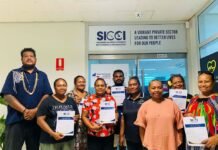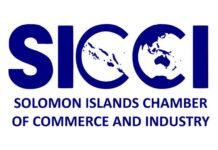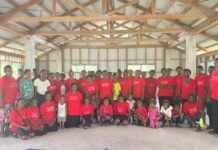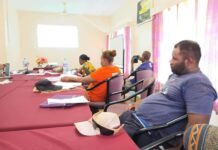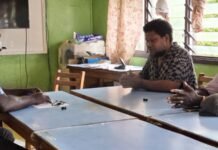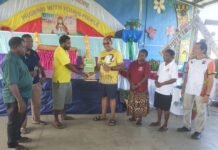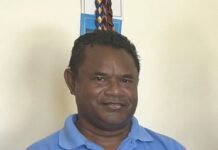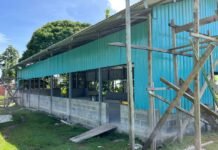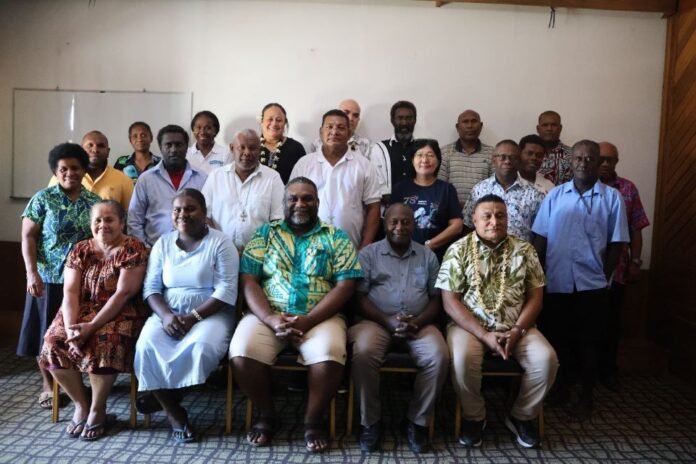THE Solomon Islands, known as the “Hapi Isles”, consists of six major islands and over 900 smaller islands with an estimate population of around 734,887. Unfortunately, approximately 70% of deaths in Solomon Islands are caused by non-communicable diseases (NCDs).
To address this epidemic of NCDs in Solomon Islands, the Ministry of Health has collaborated with faith-based organisations such as churches given that 92% of its population is Christian. An NCDs prevention and control: Linking FBO and Non-Communicable Diseases Summit was held last week in Honiara and was attended by more than 20 church representatives from around Honiara.
Dr. Nemia Bainivalu, Deputy Secretary Health Improvement for the Solomon Islands Ministry of Health while addressing the participants said, “Your faith-based organizations are uniquely positioned to reach people in every village, every community. This reach is not just an advantage; it is a profound responsibility. Together, we can redefine how we approach health and wellness in our society”.
Strengthening the role of churches with awareness around NCD prevention and control is critical as it crosscuts across all socio- economic levels in a society. Faith based organizations have a unique advantage with promoting holistic understanding and creating that urgency when it comes empowering individuals to make healthier choices that meets physical and spiritual needs.
Why is this collaboration important?
Deborah Kole from the Anglican Church of Melanesia and the Vice President for the Provincial Mothers Union said, “This is very important for awareness purposes and as an educated woman myself, I thought I was well versed with NCDs but through this summit, I have re-learned so much. NCDs, starts from home and therefore addressing this issue, also needs to start from the home. NCDs is at a crisis point and the collaboration with the Health Ministry is important because it means that faith-based organisations and the Mothers Union, have members right down to the grass-roots level and carry out NCD awareness.”
Nevlayn Laesango, National Coordinator for NCD, Ministry of Health said, “The NCD program decided to include activities for faith-based organisations in the NCD multisectoral plan in 2020 and since then we have been involving them to do NCD awareness and we also have that in our operational plan The Health Ministry doesn’t have enough manpower and so working with the churches helps us address the issue of NCD by creating awareness around prevention and control that reaches all levels in a community.”
Is it easy to contextualise and talk about health in churches?
Dr. Chester Kuma, Director for Adventist Health Services, Seventh Day Adventist Church also shares, “There is clear indication in the scripture that talks about your body as a temple for the holy spirit so in that context you don’t just put anything to your body and so you can relate that to cigarette smoking, alcohol, marijuana, and even emphasizing unhealthy food. We believe that the scripture has a lot of health instructions and as churches we tend to relate it to those areas.”
Reverand Dr. Edward Kolohai from the Solomon Islands Christian Association said, “The bible has everything and it’s easy to translate that depending on the context to talk about health and spirituality. Jesus said, only a sick will need a physician, but the only thing is how will a physician know that you are sick. So, it means the patient must go and tell the physician that I am sick before they can be attended. So, it’s quite easy to talk about health and faith and create awareness around NCDs.”
What are the plans for the future?
The three-day summit was an opportunity for the faith-based organisations, Ministry of Health and Medical Services, The Pacific Community (SPC) and the World Health Organisation (WHO) to discuss how to:
• Strengthen the Role of Churches in NCD prevention and Control Initiatives and to Review MOU with MHMS, NCD with FBO (2020 – 2024)
• Improve understanding of the health, social and economic burden, and commitment to address NCD at the global, regional and national level
• Enhance knowledge on the principle of approach to prevent and control NCD through targeting common risk factors
• Role of Churches in tackling NCD, and advocacy for engaging community stakeholders
Dr. Bainivalu said, “The NCD Department is prioritizing the inclusion of faith-based organizations in its annual work plan budget formulation for 2025. The Ministry of Health is exploring the possibility of revisiting the 2019 Memorandum of Understanding with FBOs, recognizing that a strengthened partnership is crucial for a sustainable and impactful response to non-communicable diseases”.
The meeting concluded with strong recommendations to revive the NCD Alliance that was set up in 2019, and also to finalize and endorse the terms of reference for the National NCD Multisectoral Committee so that it includes faith-based organizations.
The NCDs prevention and control: Linking FBO and Non-Communicable Diseases Summit was facilitated by the Solomon Islands Ministry of Health, SPC, WHO with funding support from the Australian Department of Foreign Affairs and Trade and the New Zealand Ministry of Affairs and Trade.






